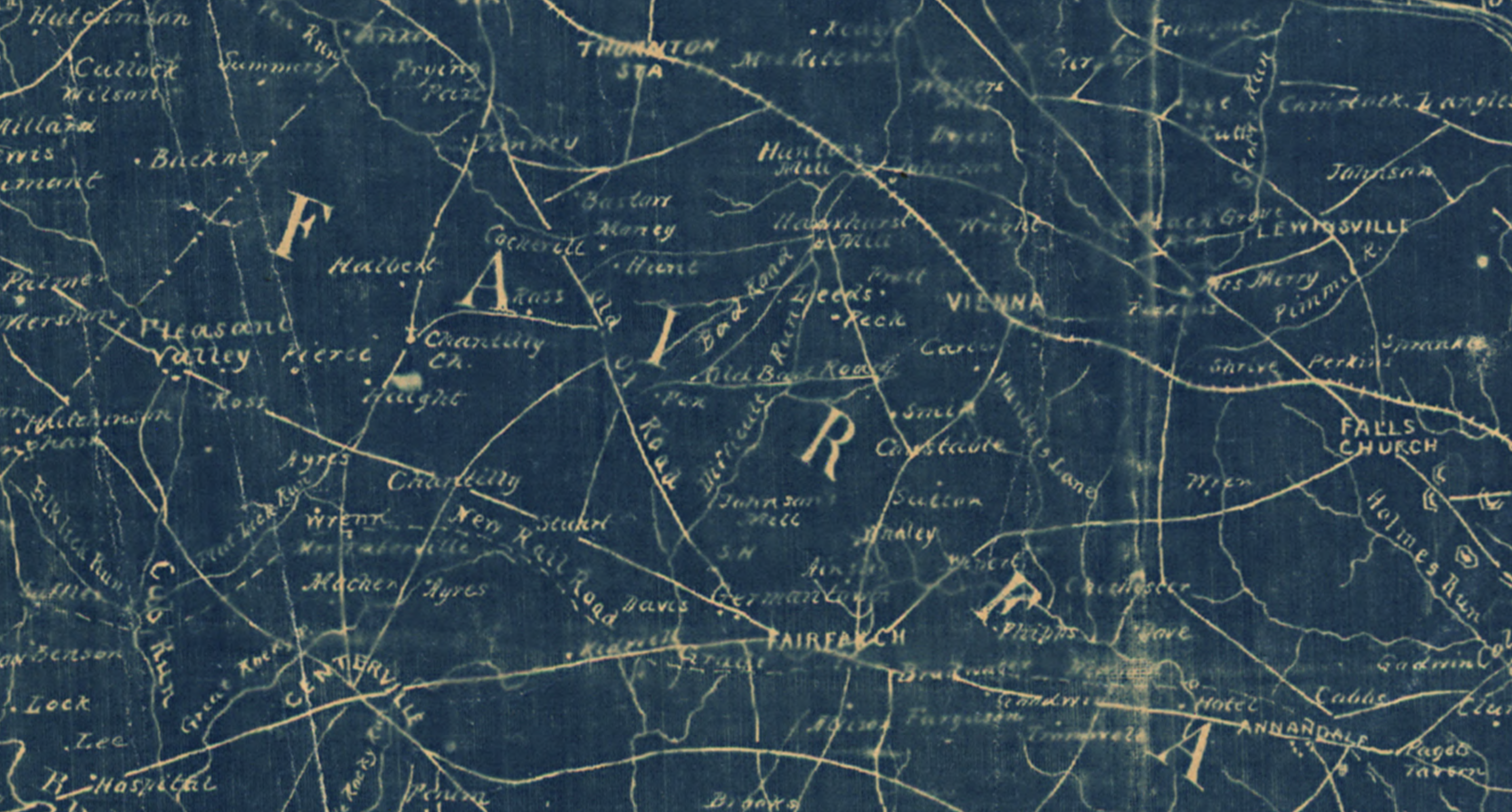Confederate guerrilla John Mosby and his forces tied up 50,000 Union troops in Northern Virginia during the last two and a half years of the Civil War. He and his men marauded deep into Federal lines. They suffered relatively few casualties and did immense damage to both the Union psyche and supply chain.
How?
This work is an attempt to piece together fragments of evidence into a coherent story about the ways that people, places, and psychologies self-organized into a shadow war on Washington, D.C.’s doorstep.
Years of research have produced an undeniable conclusion: Mosby and his men harnessed thickets, unlikely avenues, succession forests, friendly farms, and a collection of bridle paths into assets for a microwar that subsumed today’s Dulles Corridor. Slender trails that rarely appeared on maps and left the faintest traces on the muddy soil of Fairfax County became lethal highways.
By comparing and collaging advanced satellite imagery, extant maps, historic chancery records, tax rolls, censuses, first person narratives, genealogies, folklore, geology, geography, sociology, ethnography, and political history through a bifocal lens of spatial analysis and military studies, the shape and dimension of this lost war and the mysterious bridle paths on which it was fought appears from a murky past 160 years distant.
Start Here:
Deeper Reads:
-
The Big Pine Forest
Mosby’s Rangers wove through the pine-strewn wreckage of abandoned 18th-century tobacco farms along Difficult Run.
4 min read
-
Why Secession?
TL;DR–fear of poverty and hatred of categorical others were powerful root motivators behind the scenes of 19th century sectional conflict.
4 min read
-
The Guerrilla War in Suburban Virginia
TL;DR–During the Civil War, a unique configuration of landform, vegetation, bad roads, micro-polities, and valuable timber created a pocket of chaotic violence near today’s Dulles Corridor
4 min read
-
Into the Trees
TL;DR–Heavy timber served as both venue and motivator for Mosby and his men.
4 min read
-
Complex Places
TL;DR–Places are always constructed and dynamic, never stationary, and rarely purely natural.
4 min read
-
Amos Fox’s World
TL;DR—The life of the prodigal son of Fox’s Mills reminds us of the inherent complexity of people living on Difficult Run in the 19th century.
4 min read






